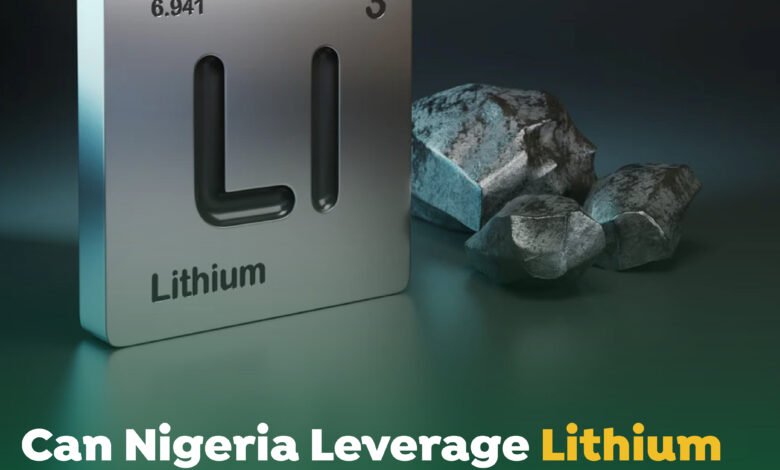
As the world turns to clean and renewable energy, there has been a surge in demand for lithium, one of Nigeria’s natural resources.
In its revised economic outlook for 2024, the African Development Bank (AfDB) noted that Nigeria has over 3,000 lithium pegmatite bodies.
Lithium, a highly reactive metal, is used in energy-dense rechargeable batteries for electronics like cellphones, laptops, electric vehicles, and grid storage. It can be found in Nasarawa, Oyo, Kogi, Kwara, Ekiti, Cross River, and other parts of Nigeria.
While countries like Australia, Brazil, China, Argentina, Chile, Portugal, the United States, Zimbabwe, and Namibia are some of the leading lithium producers in the world, Ghana, Mali, Ethiopia, Rwanda, and Nigeria also boast abundant lithium deposits.
A recent report by the World Bank has shown that the demand for essential metals like lithium and cobalt will go up by 500 percent by 2050.
This development, experts say, if properly approached by the Nigerian government, will usher in an unprecedented opportunity for Africa’s fourth-largest economy to increase its revenue and diversify from dependence on fossil fuels for crucial revenue generation and economic survival.
Tinubu Ready to Tap into Lithium?
President Bola Tinubu last week commissioned Nigeria’s largest lithium processing plant in Lafia, Nasarawa State. The lithium processing plant, built by a Chinese company, Avatar, is said to have a capacity of processing 4,000 metric tonnes daily. Another Chinese company also pledged to invest $200 million in lithium in the state.
While commending the Chinese companies for investing in Nigeria’s lithium, the President said, “My government is set to make Nigeria the solar panel and EV battery manufacturing hub of Africa.” He also urged the companies to consider siting their production factories in Nigeria while making a case for Nigerian youths, saying they are blessed with “an innate drive to work and produce.”
‘Wiping Out Unemployment’
Hosting the Group CEO of Swiss-based Glencore, one of the world’s largest natural resources companies, Gary Nagle, in Abuja, the Minister of Solid Minerals Development, Mr. Dele Alake, said Nigeria could produce 1.6 million tonnes of lithium annually. He added that this could employ 1200 Nigerians.
Industry experts, however, want the focus to be on creating high-skilled, long-term jobs, not just low-wage extraction roles. This requires investment in technological training for Nigerians to participate beyond just raw material extraction.
To fulfill its employment potential, it has also been pointed out that necessary structures ought to be in place, such as mandating all mining companies to consider manufacturing their products in Nigeria.
Militating Factors
One of the critical problems plaguing Nigeria, according to the Minister of Solid Minerals and Development, is insecurity. Experts say the government needs to design a security architecture that will make mining sites safe for miners. They noted that if mining sites are secure, the “money-bag” companies in the mining industry will find the country safe for business.
Another problem that has been cited is how some mining companies and governments neglect the complaints of their host communities, which are often about safety. Experts urge the government to prioritize the well-being of the host communities.
There is also a problem of illegal mining, which experts say has benefited some criminal elements over the years. They advise the government to enact laws discouraging unlawful mining and ensure stringent punishments are meted out to anyone found guilty.
While Chinese and other foreign investments are welcome, the Federal Government have been warned not to allow this to overshadow the need to develop Nigeria’s own expertise in lithium exploration, extraction, and processing.





